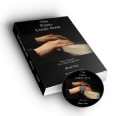Classical Period Composers:
1750-1820
The Classical Period composers were the first to write for the piano, though some wrote for the "pianoforte" and the harpsichord or clavichord. To some, this era is the greatest and best known period for piano music.
During the Classical Period composers took advantage of the piano's greater dynamic range and more responsive action to create pieces requiring a higher level of virtuosity. Though the first known piece written for the piano was created in 1732, it wasn't until about 40 years later that the piano gained wide enough usage for composers to write expressly for it.
The best known Classical Period composers:
Wolfgang Amadeus Mozart
Ludwig van Beethoven
Josef Haydn
Muzio Clementi
Wolfgang Amadeus Mozart
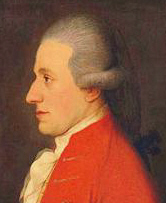
Wolfgang Amadeus Mozart, 1756-1791. Austrian composer considered one of the greatest. He learned to play harpsichord and violin from his demanding father, Leopold. He wrote pieces in almost every genre, combining technical virtuosity with musical grace and beauty. He was composing by age 5, and by 13 had written concertos, symphonies, sonatas and operettas. At age 16 he was appointed as the concertmaster to the Archbishop of Salzburg.
In 1782, he moved to Vienna, where he met Haydn, to whom he dedicated six string quartets. His many operas, including The Marriage of Figaro and Don Giovanni are considered some of the most exceptional ever composed. He mastered the symphonic form in his last three symphonies, filling them with intense emotion.
Mozart died penniless at age 35, and was buried in a pauper's grave.
Ludwig van Beethoven
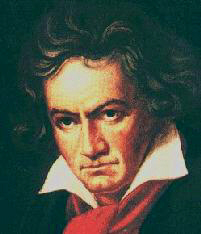
Ludwig van Beethoven, 1770-1827. This German composer is also considered one of the greatest composers of all time. As a young pianist, he was admired by Mozart and Haydn. His amazing virtuosity and exceptional compositions gained him great support from the Viennese aristocracy, even though he was equally infamous for his boorish behavior. By 1801, deafness was becoming a problem, and was complete by 1817. Obviously this handicap did not hinder his creativity.
Beethoven's music is generally divided into three periods. His early period, influenced by Mozart and Haydn, includes the first three piano concertos, numerous piano sonatas, and his first two symphonies. Around 1802, he broke with the conventions of classical music, and began an even more creative period; composing the Third through Eighth symphonies, one violin concerto, an opera, and many smaller works. Beethoven's third period, from around 1817, found him composing with even greater depth, producing the Hammerklavier Sonata, and his Ninth Symphony; arguably the best known symphony. His works brought an end to the era of the Classical Period composers, and ushered in the Romantic period.
Franz Josef Haydn
Franz Josef Haydn, 1732-1809. This Austrian composer is also considered one of the great classical period composers. He grew up in poverty, until his compositions came to the attention of the wealthy aristocrats of Vienna. He became Princess Esterhazy's musical director, serving in that function for 29 years. He developed a close friendship with Mozart, and each composer influenced the other. Haydn expanded the three-part sonata form, changing the development of classical music. Very prolific, he wrote over 100 symphonies, plus over 80 string quartets, 50 sonatas and many smaller works; creating music well into his seventies.
Muzio Clementi
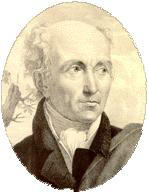
Muzio Clementi, 1752-1832. This Italian composer was the first to write specifically for the piano. He was a church organist by age 9, and by 14 was invited to go to England to study music. He developed a great level of virtuosity, and was considered the best pianist of his time. He was the first to make a career as a pianist, traveling Europe playing concerts and recitals. He was asked by the Austrian Emperor to "duel" with Mozart, but the Emperor was compelled to declare a "tie." This initiated a rivalry on Mozart's part with Clementi. Later Mozart "borrowed" a melody from Clementi, which Mozart used in the overture from The Magic Flute.
In 1782, Clementi returned to England, where he taught and continued to compose. He also started a factory to manufacture pianos, but it was destroyed by fire in 1807. In 1813, Clementi started what was to become The Royal Philharmonic.
Muzio Clementi composed over 100 sonatas, many smaller works and some unfinished symphonies. He was a major influence on Mozart, Beethoven and others and continues as an influence in the study of piano.
He died at age 80 in the English countryside.
Start Playing Piano Today with the Piano Guide Quick Start Course!
Easy to follow step-by-step lessons designed for adult beginners. The next best thing to private lessons!
What You'll Learn:
- Notes on the piano/keyboard
- Proper fingering
- C major scale
- Chords
- How to read music
- And much more!
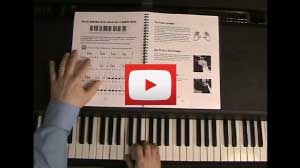
Video lessons - watch as I play everything for you.
